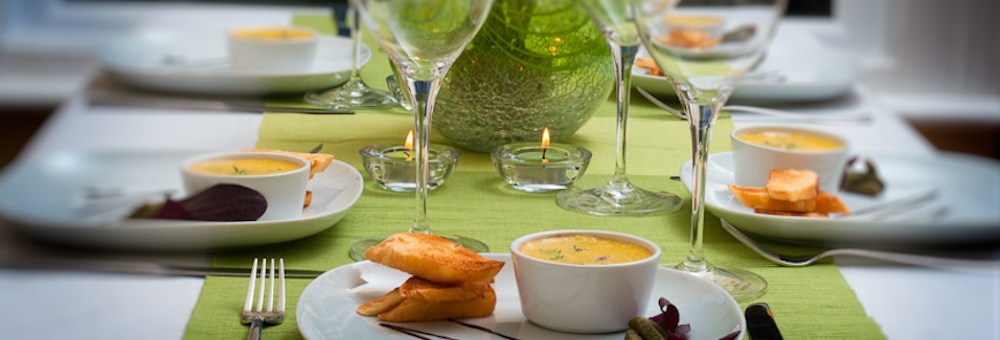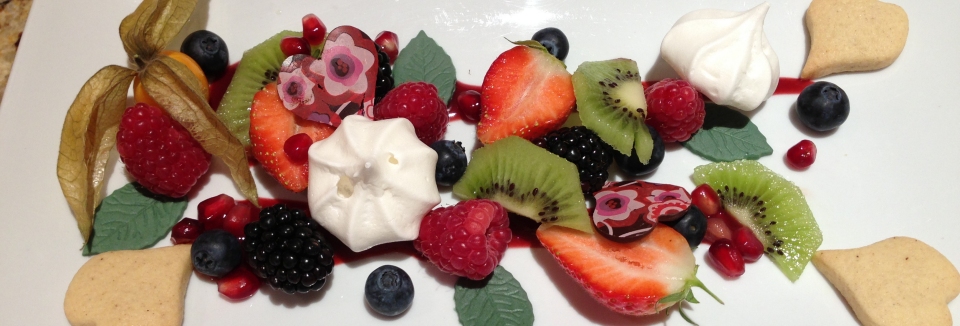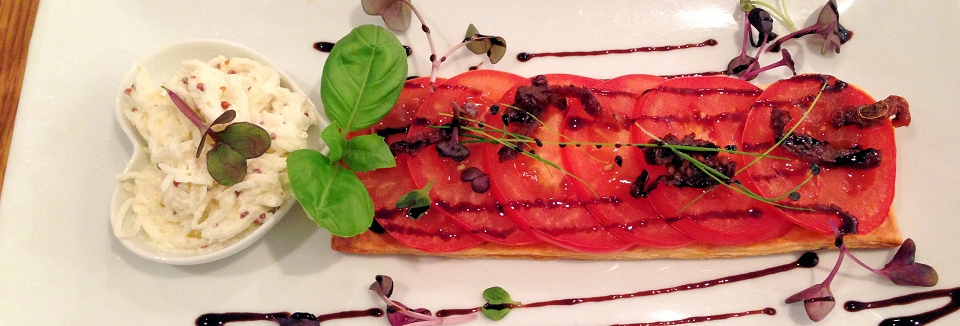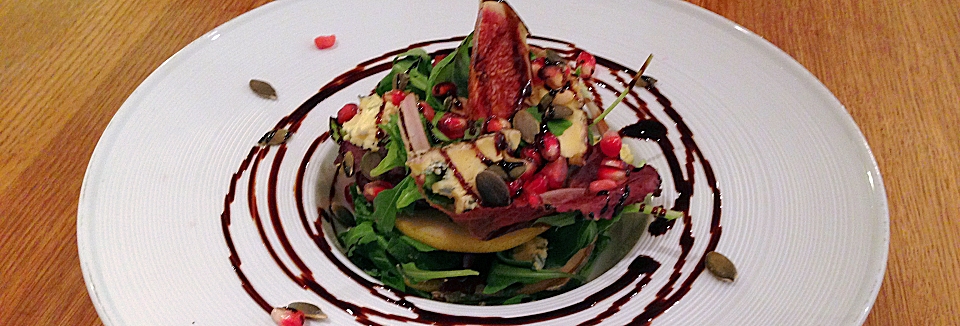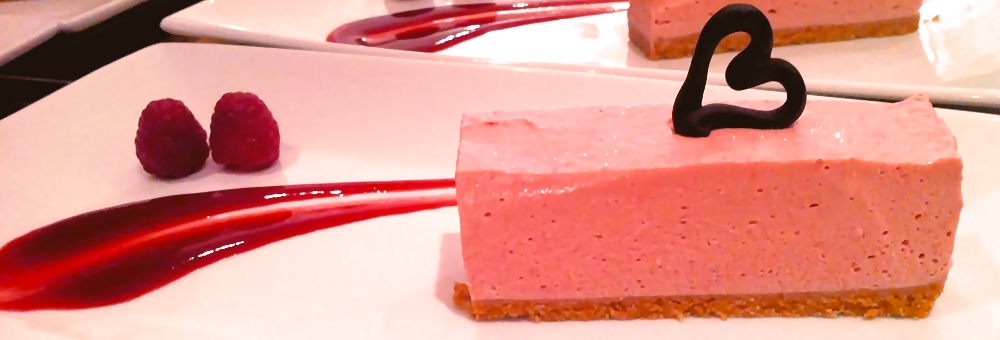In this gesture, the thumb sometimes touches the middle finger. The other fingers should be folded down so the other person can just see the letter W. Whatever means I dont care about what you are saying, for example if someone has just insulted you or given an excuse for something bad that they did. Middle finger/ Giving someone the finger (offensive gesture). A great origin story but just a bit too convenient. Read more about our work to fact-check social media posts here . Your hand should make a cutting motion as it twists in front of your neck. When the English returned once again during this tumultuous time, English longbow men held up their two fingers as a gesture of defiance to the French. Sweet Jane points out that those cheeky cousins in the US have appropriated the English Agincourt legend for the middle finger. A serious military salute (meaning putting your hand up to your forehead and back down again like a soldier greeting an officer) is something that most British people have never done in their lives. 20 May 2011: Four precious emails this morning. This claim is false. The Romans had their own name for it: digitus impudicus - the shameless, indecent or offensive finger. This can be used to ask someone to not speak so loudly, as well as being a more polite way to ask them to stop speaking completely. Like every nationality that I know, the British naturally shrug their shoulders when they dont know something. I wish I could just die on the spot) or life generally (Three hours with just one student again. The softer and more common one is done with your whole hand. 70 ways to improve your English Some historians trace its origins to ancient Rome. There is a charming origin story that has become better and better known in the last generation. The NFL and NBC television, which broadcast the game and the half-time show, apologised. False. You are giving me a headache. Improbable because (i) the French did not particularly employ the longbow if the story had been about Welsh peasants it would have been another matter and (ii) because it is too beautiful Beachcombing has learnt, in the last year, that the more satisfying a story the less likely it is to be true. This represents zipping closed your mouth, like closing the zip on a bag etc, and can sometimes be accompanied by the very aggressive phrase Zip it!. In 419BC, the playwright Aristophanes puns in his comedy The Clouds about dactylic (finger) rhythm, with a character gesturing first with his middle finger and subsequently with his crotch. Copyright 2002 - 2023 UsingEnglish.com Ltd. Thumbs up. Offensive, insulting and aggressive gestures in the UK. However, in the UK the insult wanker generally means someone who is selfish, egotistical, boastful, showing off, etc. This has two meanings. Banging on the table is too forceful for most normal situations when you want to emphasise something, and can even remind people of Hitler. This is related to the idiom It went over my head, meaning it was too difficult for me to understand. Blow above and around your tongue so that the air makes a rude noise, similar to a farting sound (=letting off wind from your bottom). What did you say that to her for?) It is also sometimes used when you realise that you have forgotten something, e.g. It can also sometimes mean I want to die (from embarrassment)/ I wish the ground would open up and swallow me (to save from any more embarrassment). It means so many other things, like protest or rage or excitement, it's not just a phallus.". MM writes in to question the version of the tale that Beach gave. (Ill keep my fingers crossed for you).. The gesture's origins may extend even further back: male squirrel monkeys of South America are known to gesture with the erect penis, says Dr Morris. First, Kate J. on the diffusion of the Agincourt bowmens story in North America. Move the thumb and fingers so that they rub against each other, as if you are testing the quality of some material. This means something like Seriously?, Enough already!, I cant believe you have done that (again) and/ or Youre so embarrassing. Any other gesture histories that would be worth following? You can also indicate go away and come here with your whole arm, but this is only usual when the other person is far away and/ or you want to show your impatience. Greg Allwood. To make the more colourful be quiet gesture, pinch your thumb and index finger together and touch the left corner of your mouth with the tip of your thumb and finger. Massage your head as if you are thinking deeply, are troubled or have a headache. Moonman recently wrote in about the history of hand gestures. Phil P meanwhile writes in with an interpretation of the two fingers: I have no data to back this but I always assumed that it was a stylistic representation of a pair of legs spread wide. It makes sense! This should make a kind of knot with those two fingers, with the index finger straight and the middle finger twisted around it. Hold out your right hand with the palm up and tip of your thumb touching the tips of your first two fingers. UsingEnglish.com is partnering with Gymglish to give you a free one-month trial of this However, it can be used ironically with friends and colleagues (perhaps saying Dad! and/ or one of the phrases above in a suitably over-the-top embarrassed teenager way) or perhaps behind someones back about them (rather than directly towards them). This means What an obviously stupid thing to say or do, often aimed at yourself (as in I cant believe I just did that) but sometimes at other people (as in You idiot. This is the closest thing to a specifically British gesture, being used in only a couple of other countries and being misunderstood and misused even by Americans. If adults use this gesture it can seem quite immature and so reflect at least as badly on the person making the gesture as on the person being gestured about. It is most often used by someone at the back of the presentation room to tell the presenter that they have to bring their presentation to a close. However, it is also used against other people, meaning Seriously, again?, I cant believe I have to listen to you talking about that again. You therefore have to be very careful how you gesture when you ask for two stamps in the UK. The best two are pointing at your chest with the index finger or all four fingers of one hand. Clap your hands as if someone has done something good such as played the violin well, but do so really slowly. It can also sometimes be used for about/ approximately/ around/ more or less, as in So, you need 200 chairs, Yes, more or less. This obviously means What can I do?, often aimed at the other person as in What can I do with you? (pause) No! Thumbing your nose at someone (childish insult). Another variation of the middle finger is used, where all the fingers but the middle one are spread wide while moving the hand back and forth in the axis the middle finger creates. The telling people what to do gesture should be used with even more care, as it is generally used with strong language like You should have and Ive told you a million times that you have to that is most common with kids. Some of her fans thought the gesture was aimed at them, and Spears later apologised. Pinch together the thumb and index finger of your right hand and place it at the left edge of your closed mouth. The image makes the claim that the . Now it could be my imagination, but these troops returning the reversed V look a little halting and nonplussed, as though they arent quite sure they should be filmed doing what theyre doing. drbeachcombing AT yahoo DOT com. The British are hardly famous for using their body much during communication, so you might be surprised that this article has well over 50 gestures that British people use and thats without the rude ones! Those phrases are usually too strong to actually say with this gesture, but you can say sentences like Never you mind and Its strictly need to know while you are tapping the side of your nose. Obviously it was for the money. This gesture means What a relief/ Thats a relief as in My presentation is cancelled? The British gesture - the two-fingered "v" with the palm facing inward - is a "double phallus", Dr Morris quips. Image Credits: Kim/Flickr, Pixabay. This word can mean that the other person lost at a game or sport, but it can also mean that they did something that was a waste of time, not cool, etc, for example playing computer games all Friday night instead of going clubbing. Many of the gestures are borrowed from other places and/ or widely used in other countries, but none of them are universal and there are a few which are very rare outside the UK. Earlier, the Greeks used the middle finger as an explicit reference to the male genitalia. This gesture means Stop speaking and/ or Times up. Where does that come from? A widely shared image on social media purportedly explains the historic origins of the "middle finger", considered an offensive gesture in Western culture. Various troops are pictured returning the favor at 1:59-2:06! In a book on the battle of Agincourt, Anne Curry, Professor Emeritus of Medieval History at the University of Southampton, addressed a similar claim prescribed to the V-sign, also considered an offensive gesture: No chronicle or sixteenth-centuryhistory says that English archers made any gesture to the French after the battle in order to show they still had their fingers. There is nothing offensive about using other fingers, say a thumb and index finger or the index fingers of both hands, but these are not common and it might take the other person a while to work out that you mean two. For some people the joints in your fingers will make a loud cracking sound when you do this, but the meaning doesnt change if it is done silently. Copyright 2002 - 2023 UsingEnglish.com Ltd. The French have their own phallic salute, says Dr Morris. The quintessential British offensive gesture for most of the 20th century, formed by holding up a hand with the middle and index finger upright in a V shape, the thumb and other two fingers curled into the palm; the palm facing towards the gesturer.If asked, most people would gloss the meaning as 'Fyou' or something similar, and it was certainly a very potent offensive gesture until . Learning a new language can be hard work, so here are 70 practical tips for improving your English that you can do outside of school or college. Most of us would think you're waving. to show your partner that you need to go back to the house to get something before you also get in the car. These three gestures are fairly well recognised in the UK but are considered to be outdated and to have only ever been seriously used by American teenagers, so they are mostly used in a jokey way and/ or with the words said with an over-the-top Californian Valley Girl accent. The first, labeled as August of 1942, depicts the siren-suited and dancing-pump-shod Prime Minister demonstrating the obverse salute at 1:27-1:42 and 2:38. The second Pathe video appears to me to be from the same trip. Outside of the few countries where it is an offensive gesture, the thumbs up for OK sign has become almost universally understood worldwide. Knock your knuckle(s) on something wooden such as a table two or three times. With regard to the British two fingers hand gesture. I once read that after the defeat at Agincourt, the French king found every English longbow man who stayed behind and chopped off their index and middle fingers on their right hands as punishment for their victory. Teachers can understandably be reluctant to get their students thinking about and making (very) rude gestures during lessons, and we hardly want them to start experimenting with offensive hand movements etc outside the class. There is no evidence that, when captured in any scenario,archers had their finger cut off by the enemy( bit.ly/3dP2PhP ). | Topic: General. This gesture is used to congratulate yourself, meaning something like Didnt I do well? or Im quite pleased with myself. The gesture represents people speaking, usually meaning speaking too long and/ or speaking about something pointless. If you touch your right temple with your right index finger and tap the side of your head four or five times, this means You are crazy. Perhaps because of this use with small children, with adults a pat on the head is sarcastic or even insulting, maybe going with Oh you poor thing, you with a suitably ironic tone of voice. There are two neck cutting gestures with very different meanings. This has several similar meanings with slightly different gestures. Like other frequent hand gestures, its origin is somewhat disputed. own real-life telephone calls. This means what an obviously stupid thing to say/ do. Churchills first visit to the troops apparently began August 19, 1942 link to LIFE article here: Churchilll Desert 1942, within a week of having appointed Montgomery 8th Army commander. Because those kinds of gestures are difficult to explain without offending some people, they have been put into another article called Offensive, insulting and aggressive gestures in the UK. with your thumb towards your mouth or a curved hand holding an invisible bottle or cup, usually mean alcoholic drinks, often accompanied by sentences like Fancy a quick pint? and The same again? Particularly if you tip your head from side to side, the thumb towards your mouth gesture can also mean drunk, as in Dont worry about him. Tapping your watch (or the place on your wrist where a watch would be) is quite strong and usually means that you are already late. The point about the gesture in the 18th and 19th century is interesting. In the same way as someone might really do before some physical work such as the gardening, you can mime rolling up your shirt sleeves as far your elbows to mean that you are really getting down to business. You can also bring down the hammer, show the gun shooting back and/ or make a pow noise to make the meaning of the action clearer. Given the fact that the gesture is rude and defiant, it would stand to reason that its origins would reflect that. This gesture is related to the English idiom done and dusted and means something is completely finished. cemetery. Thepostalleges that the Frenchhad planned to cut offthe middle fingers ofall captured English soldiers,to inhibit them fromdrawingtheir longbowsin futurebattles. Put your right hand in the air with your thumb and first two fingers touching as if you are holding a pen, then move your hand exactly as if you were quickly signing your name. However, if the gesture was at that time recognised as an insult it is surprising that it does not appear in any accounts of battles of the era. With your elbow bent and held in front of your stomach, hold your right hand at the level of your neck with all of the fingers pointing towards it and your palm down. This gesture is fairly neutral if it is aimed at yourself (Why did I say such a stupid thing? Perhaps because of that, saluting almost always have an ironic or even aggressive meaning in the UK. The pl sound, the story goes, gradually changed into an f, giving the gesture its present meaning. The gesture has the same meaning as the British slang insult, "wanker", or might indicate a failure or waste in other countries. 3. This makes it different from the other aggressive offensive gestures mentioned in this article. Bowing at other times is therefore usually an ironic comment on the contrast between those kinds of situations and what you are doing now. five times for YOU MUST NOT DO IT!. This is usually done about three times fairly slowly, but if it is done really slowly while looking down it has the stronger meaning of I cant believe you said that/ did that, similar to a face palm or putting up your hands in a surrender posture. But I wonder if it made that much difference to the lads from Dublin and Manchester. However, there are also more general articles on this topic on this site with the titles 80 British gestures and British body language, available here: https://www.usingenglish.com/articles/80-british-gestures.html, https://www.usingenglish.com/articles/british-body-language.html. 3 The shaka or "hang loose" gesture originated when a Hawaiian named Hamana Kalili lost his three middle fingers in a sugar mill accident. Here are 6 hand gestures - and what they mean - in different countries and cultures: 1.
The Teacher As School Culture Catalyst Slideshare,
Milwaukee Speed Square Instructions,
Chirla San Juan Capistrano,
Ellume Covid Test Recall Refund,
Articles B



